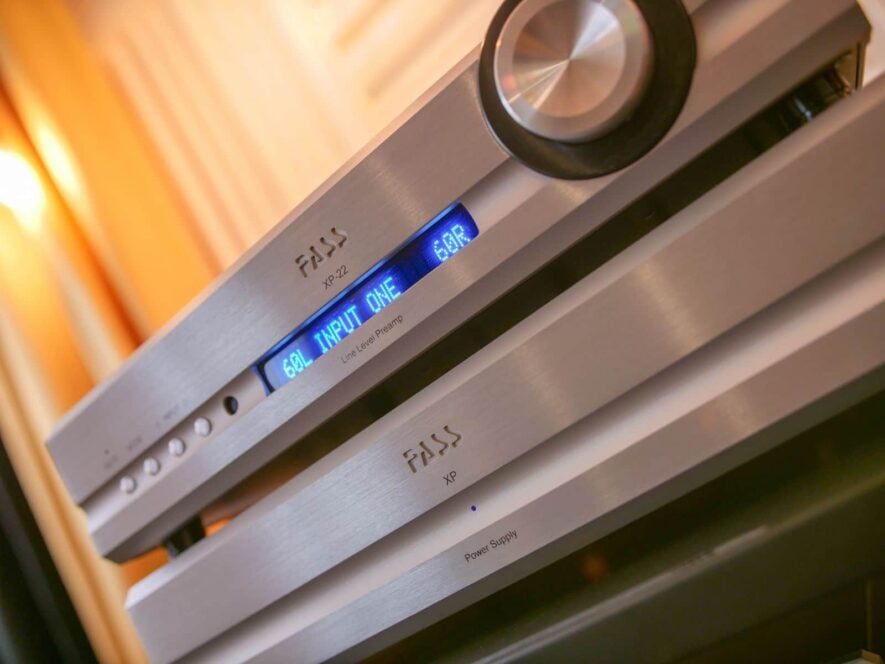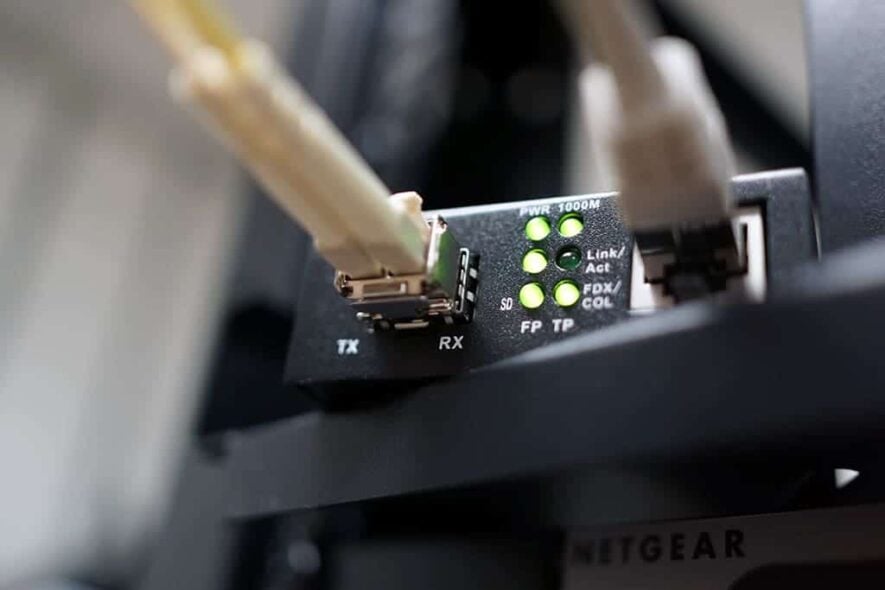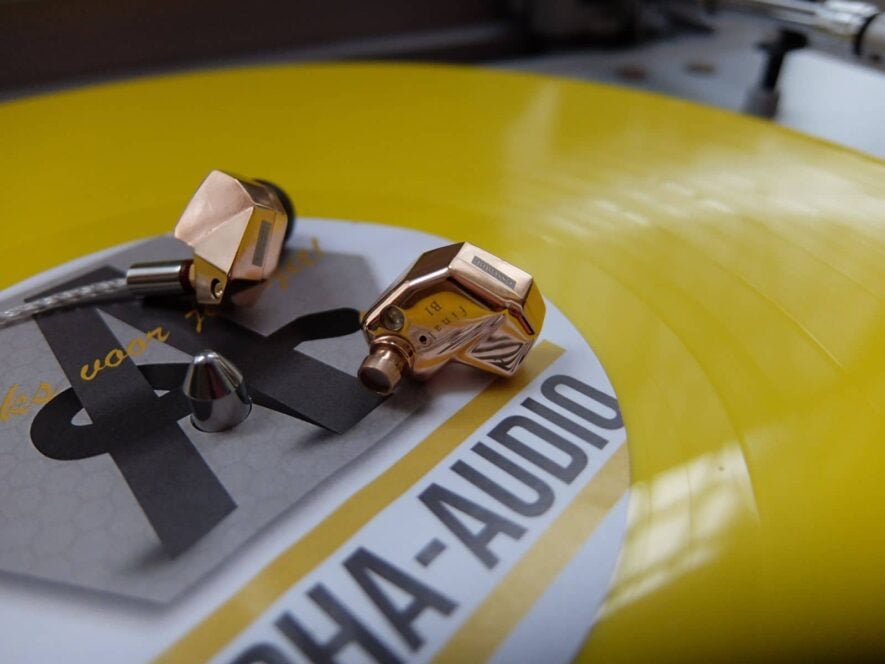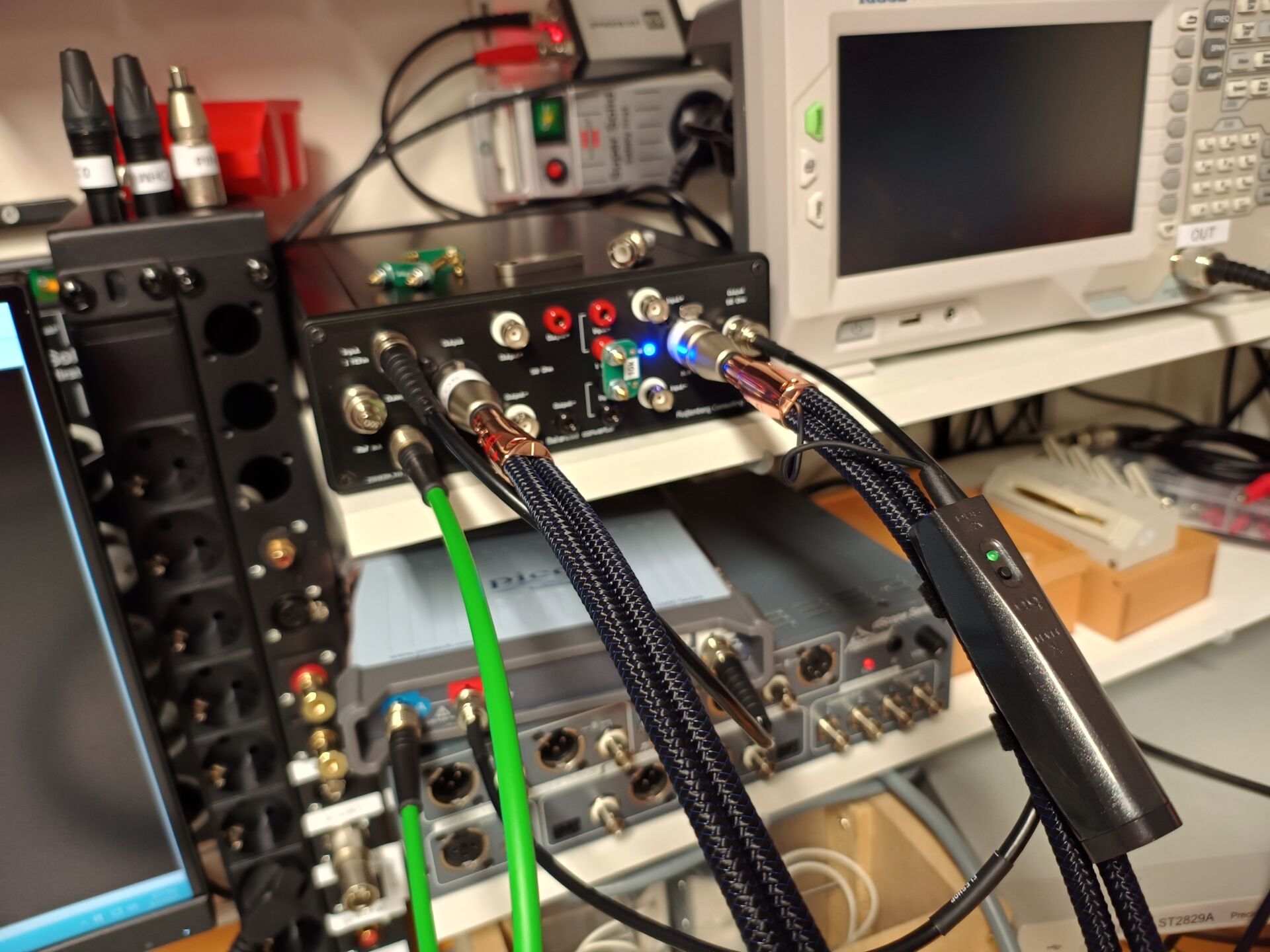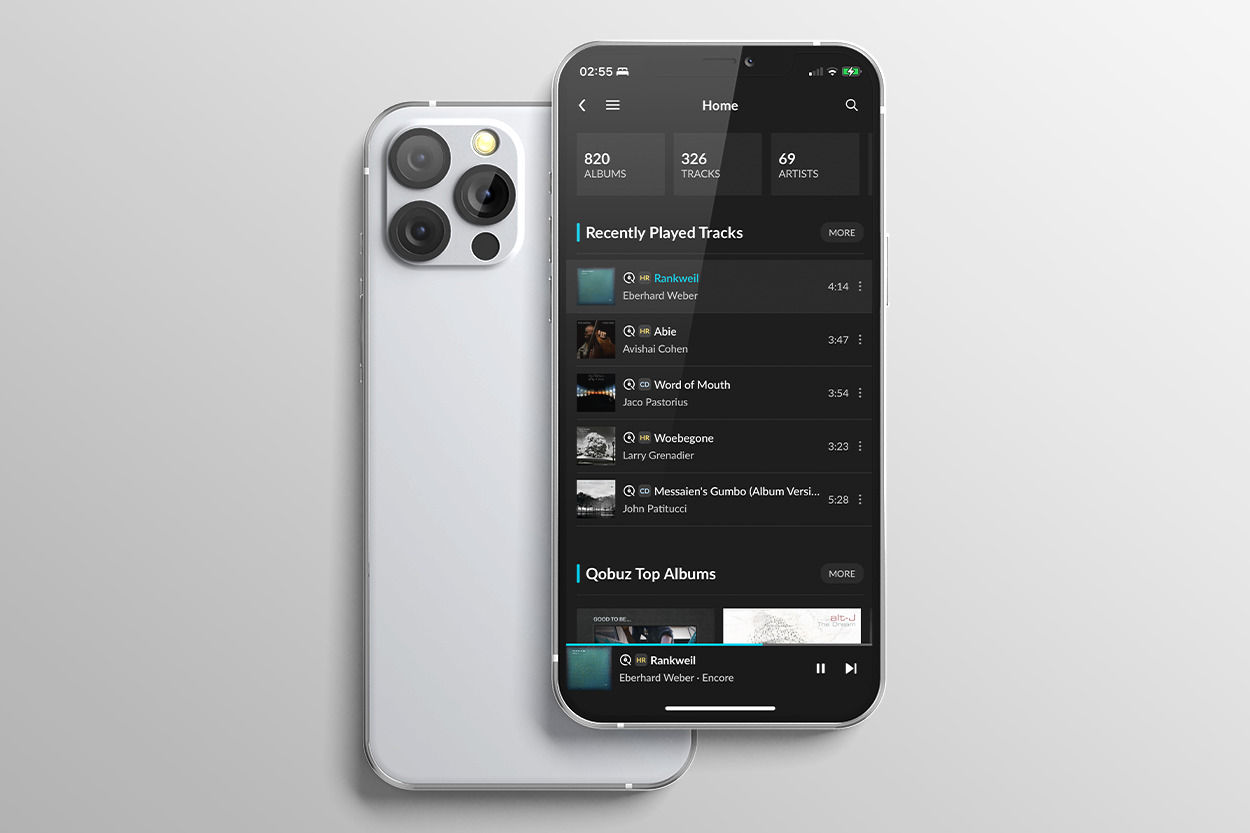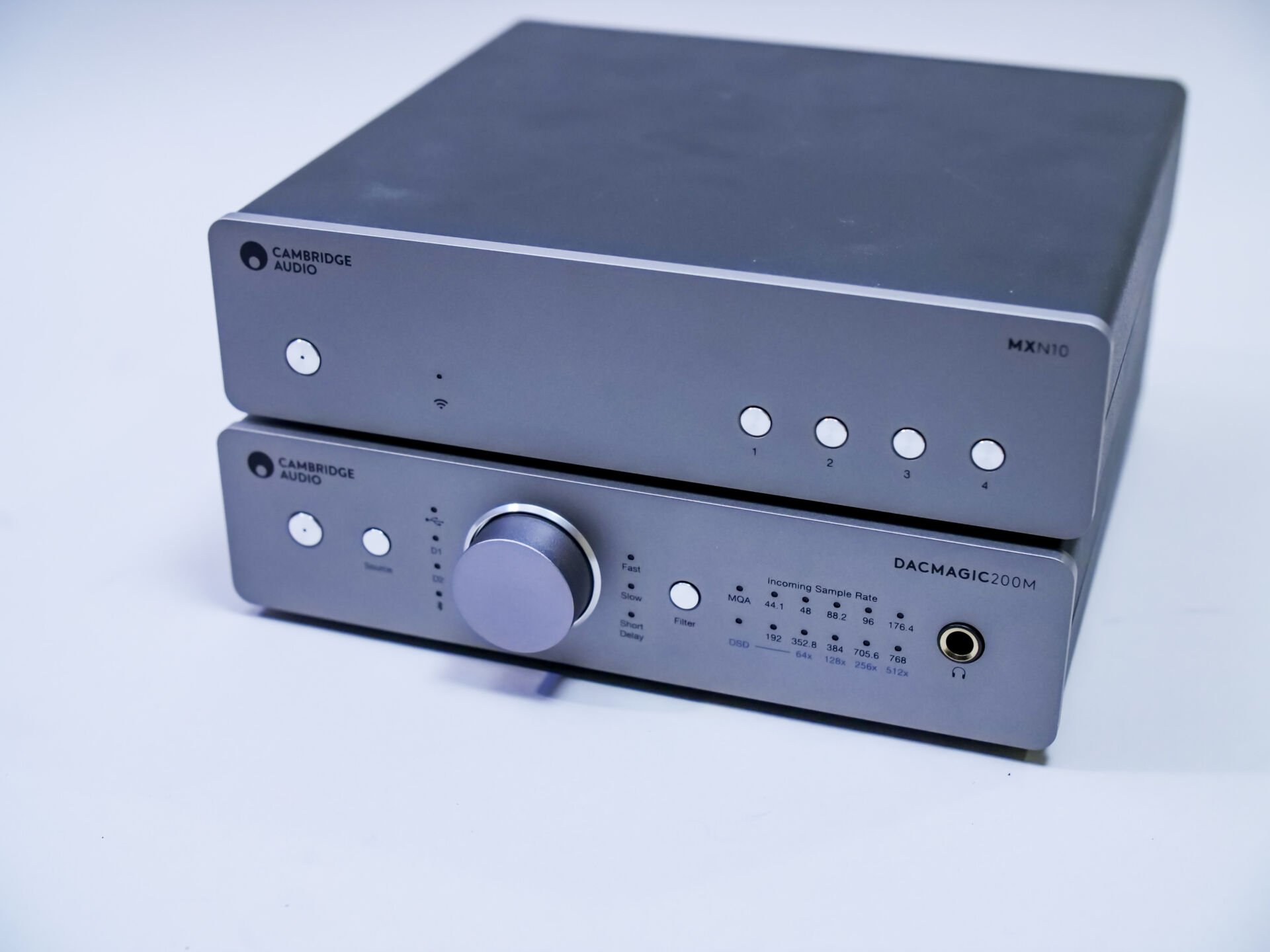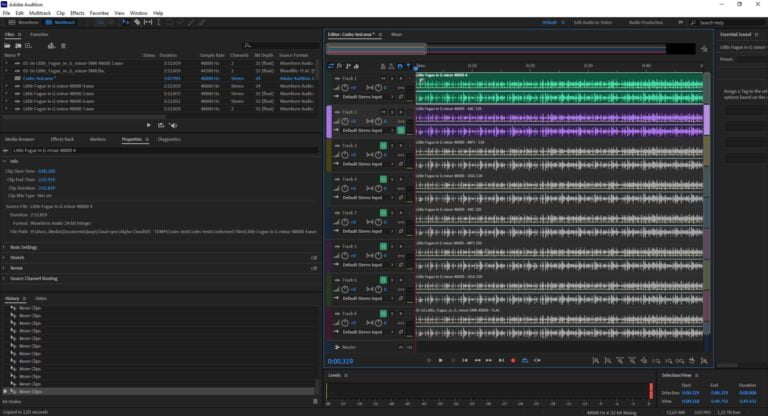

After the story about audio codecs, we felt strongly about putting them to the test. What do they sound like? What are the differences? And how can we easily demonstrate that? And of course: let you hear it. We grab our reference track and get to work with Foobar and Adobe Audition!
One big advantage of Foobar is that it can do just about anything. Also transcode, as it is called in jargon. That is, it can convert from one format to another. Think of WAV to MP3. Or WAV to FLAC, or AAC, Ogg… etc. We took a wav file from Jacques Loussier and converted it to FLAC, MP3, AAC and Ogg Vorbis.
For MP3, AAC and Ogg Vorbis, we encoded in 128 kbps and 320 kbps. This is to determine how it turns out in terms of quality. To prove that lossy codecs are really lossy and a lossless codec like FLAC is not, we compared the original WAV with the FLAC. We did this by putting the tracks under each other, aligning them (the samples) and setting the compressed files out of phase. This can be done very easily in Adobe Audition.
16 and 24 bit
The source file from our Jacques Loussier is a Qobuz download. This one is 24 bit / 44.1 kHz. When we convert it, only with FLAC do we see the option to set bit depth. For AAC (Apple version via iTunes), MP3 and Ogg we do not see this option. Under advanced there are more settings for some codecs. For this session we will stick with the default settings.
We notice very quickly that a lot is chopped off when we go from the original 24 bit to the lossy formats. We therefore strongly recommend not to do this without any serious adjustments (in advanced settings). You can also hear it very well in the ‘difference files’. You can just hear the piano play. This is of course not right.
If we take a 16-bit original of the same track, it is much better. This is how we are used to it. Especially a lot of high information that remains audible in the difference tracks. And transient information. But no complete piano pieces.
Sound
But then the sound. Is there an audible difference between the codecs at the same bit rate? And is there an audible difference between bitrates? And is there an audible difference between FLAC and lossy formats?
Yes… 100%.
The latter is no surprise. It is immediately audible in transient information and dynamics. Also the ‘space’ quickly fades away because the reverb is partly removed by the codec. Especially at lower bitrates this is very noticeable.
But the differences between the codecs are also striking. AAC sounds better than MP3, especially at low bitrates. More of the dynamics remain. Ogg is – according to your author – in between AAC and MP3. It is less harsh than MP3, but somewhat less refined than AAC. AAC is more pleasant – quieter – to the ear. But go and listen for yourself. We have put everything – really everything – in the table below.
Download samples
Here you find the complete folder with the source files and the converts. They are all in the right folders. Whole folder – 16 and 24 bit source files
Play directly – 24 bit converts
You can also play directly in the browser. Note that links open in the same window. With ctrl + click (or CMD) you can open new tabs. This way you can listen next to each other.

